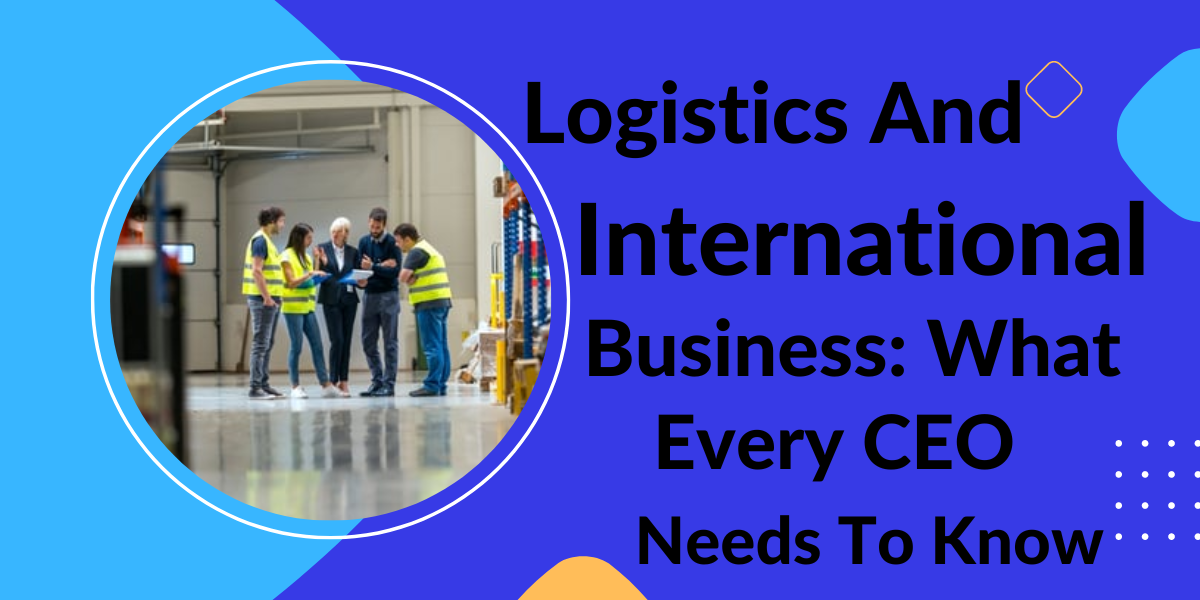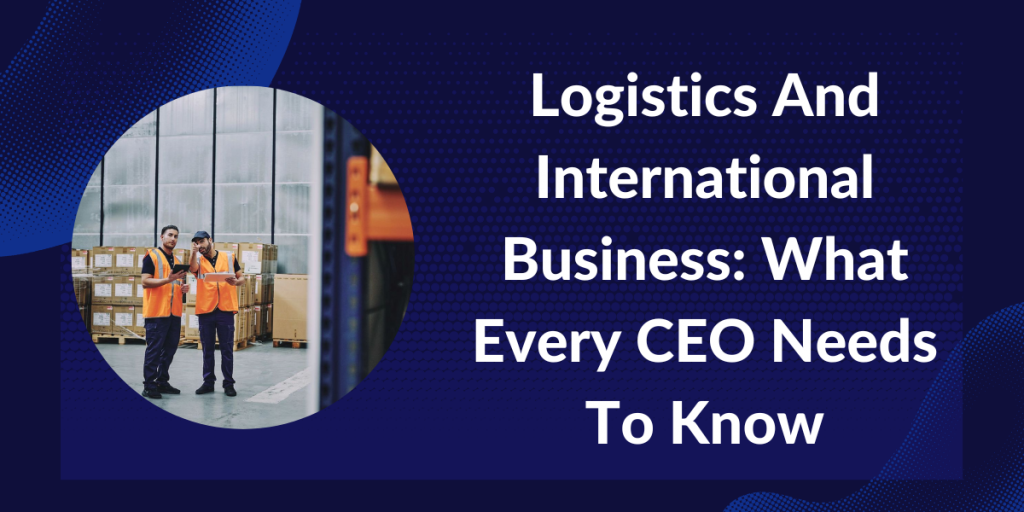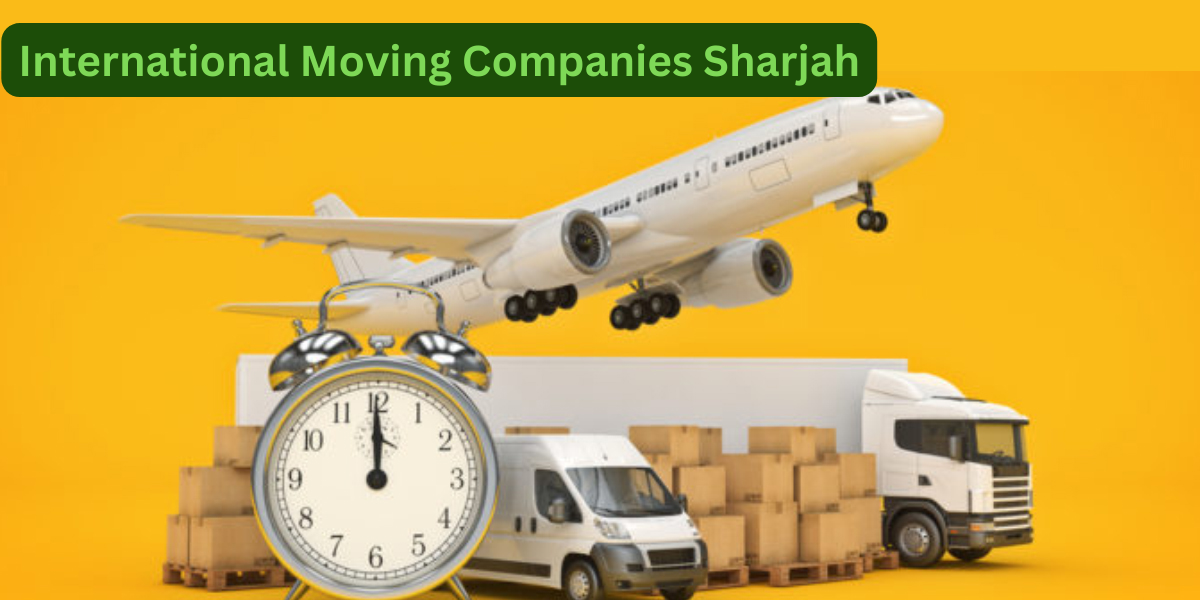Logistics And International Business: What Every CEO Needs To Know

In recent years, the term “logistics” has become increasingly popular in business circles. And with good reason – logistics is a critical component of any successful business, especially businesses that operate on an international scale. But what exactly is logistics? And what do CEOs need to know about it in order to run their businesses effectively? In this blog post, we will explore the basics of logistics and international business. We will discuss what logistics is and why it’s so important for businesses, as well as some of the challenges and opportunities that come with operating a business on a global scale.
What is logistics?
In business, logistics is the organized movement of materials and products between two points. Typically, this involves the coordination of transportation, warehousing, and inventory management. In a global context, logistics becomes even more complex, as businesses must account for cross-border trade regulations, different modes of transportation, and varying lead times.
An efficient logistics operation is critical to the success of any business, but it can be especially important for companies that operate in multiple countries. A well-run logistics operation can help a company to avoid costly delays and disruptions, while also reducing its overall shipping and transportation costs.
At its core, logistics is all about managing the flow of materials and products. This includes everything from sourcing raw materials to manufacturing finished goods, and finally delivering those goods to customers. Achieving an efficient and effective flow of materials and products requires a coordinated effort across multiple functions within a company, including purchasing, production, warehousing, transportation, and customer service.
What is international business?
In order to best understand logistics and international business, it is first important to understand what international business is. International business can be defined as any type of business activity that takes place across national borders. This can include anything from the import and export of goods and services to the setting up of overseas branches or subsidiaries.
International businesses need to be aware of the different operating environments in each country they do business in. This includes understanding the local laws and regulations, as well as the cultural norms. Different countries also have different infrastructure levels, which can impact things like transport and communication. All of these factors need to be taken into account when planning logistics for an international business.
An important part of international business is trade. Trade is the exchange of goods and services between two or more countries. There are a number of different trade agreements in place around the world that help to facilitate this exchange. The most well-known agreement is probably the World Trade Organization (WTO), which sets the rules for international trade.
Another important part of international business is investment. When a company invest in another country, they are essentially putting their money into that country’s economy. This can take a number of different forms, such as buying shares in a foreign company or setting up a new factory overseas.
There are many different aspects to consider when doing business internationally. However, by understanding the basics of international business, you will be well on your way to success.
If You are Lookig For Best Logistics Company In Dubai then Click On The Blow Button.

What do CEOs need to know about logistics and international business?
In order to be successful in today’s global economy, CEOs need to have a basic understanding of logistics and international business. Logistics is the process of planning, implementing, and controlling the efficient, effective flow of goods, services, and information from point of origin to point of consumption. International business is the process of conducting business transactions across national borders.
Due to the increasingly global nature of business, it is essential for CEOs to have a good understanding of both logistics and international business. A CEO needs to be able to make decisions about where to locate production facilities, how to ship goods around the world, and how to navigate different regulatory environments. They also need to be able to identify market opportunities and build relationships with customers and suppliers in other countries.
While it is not necessary for a CEO to be an expert in logistics or international business, it is important for them to have a basic understanding of these concepts. There are many resources available that can help CEOs learn more about logistics and international business, including books, websites, trade associations, and educational programs.
The benefits of outsourcing logistics
There are many benefits of outsourcing logistics for businesses, including:
- 1. Cost savings: Outsourcing logistics can help businesses save money on transportation and warehousing costs.
- 2. Efficiency: Outsourcing logistics can help businesses improve their overall efficiency and productivity.
- 3. Flexibility: Outsourcing logistics can provide businesses with the flexibility to respond quickly to changes in demand or market conditions.
- 4. Quality control: Outsourcing logistics can help businesses maintain better control over the quality of their products and services.
- 5. Risk management: Outsourcing logistics can help businesses reduce the risks associated with transportation and warehousing operations.
The challenges of international business
There are many challenges that come along with running a business internationally. The first challenge is finding the right partners in other countries to work with. You need to find partners who you can trust and who have a good reputation. Another challenge is getting your products into other countries. This can be difficult because of customs regulations. You also need to be aware of the different laws in other countries. Finally, you need to be able to effectively communicate with your employees in other countries. This can be difficult because of language barriers.
How to overcome the challenges of international business
There is no one-size-fits-all answer to the question of how to overcome the challenges of international business. However, there are a few key strategies that can help CEOs and other business leaders navigate the complexities of the global marketplace.
One of the most important things to do is to build a strong team of experts who understand the nuances of doing business in different countries. This team can provide invaluable insights and help you avoid potential pitfalls.
Another critical strategy is to develop a thorough understanding of the local business environment in each country where you operate. This includes understanding the regulatory landscape, the competitive landscape, and the preferences of consumers.
Finally, it is important to have a flexible approach to doing business in different countries. What works in one market may not work in another, so it is important to be adaptable. By being open to new ideas and willing to experiment, you can find creative solutions that allow you to succeed in even the most challenging international markets.


